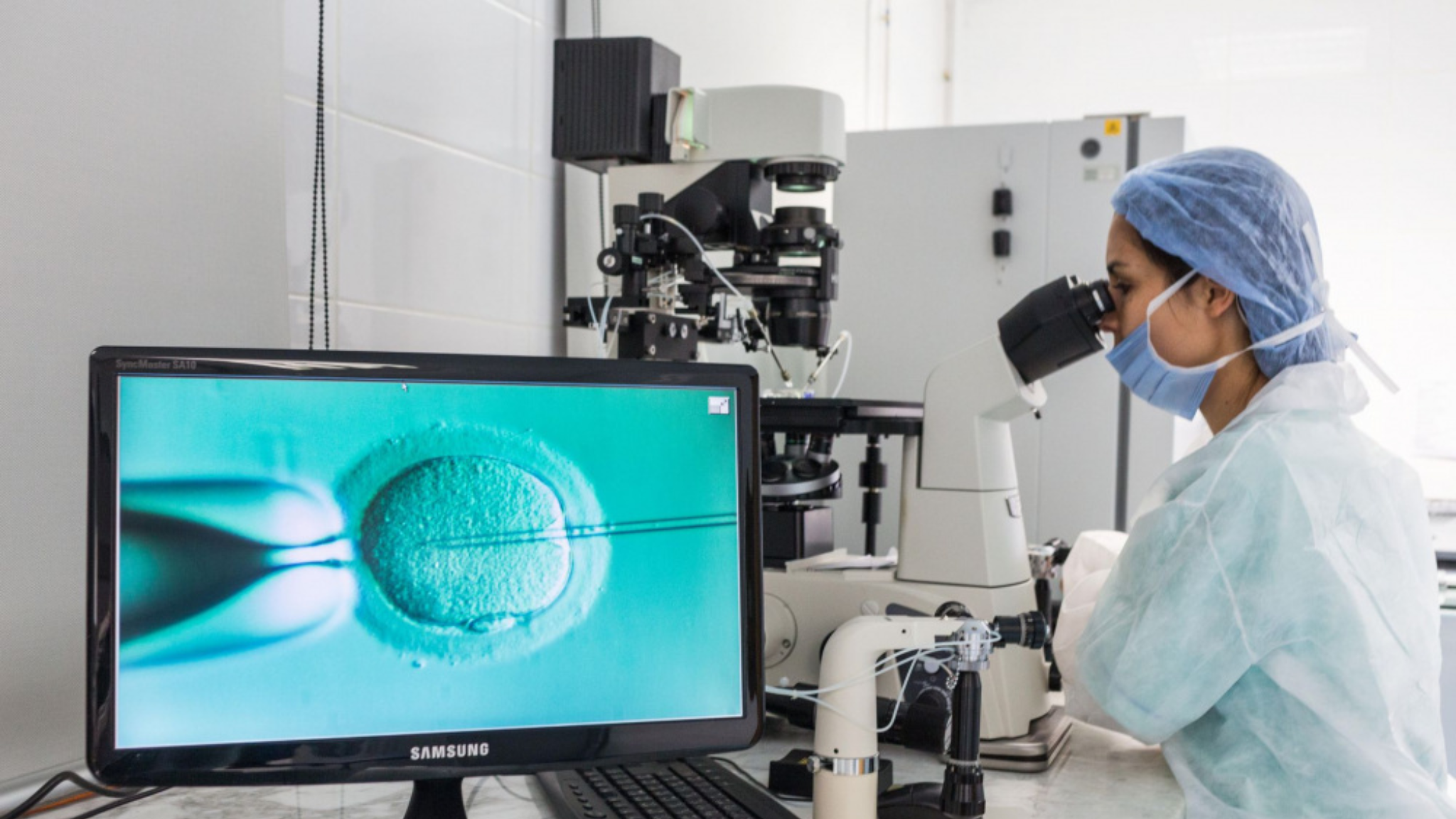Careers in assisted reproductive technology can earn you anywhere from $40,000 to $400,000](https://www.prnewswire.com/news-releases/assisted-reproductive-technology-market-worth-454-billion-by-2025-grand-view-research-inc-687990711.html), based on your role and experience. The healthcare sector is in high demand for fertility specialists and related professionals, with ZipRecruiter listing over a million jobs daily, including numerous assisted reproductive technology jobs.
More states now require healthcare plans to cover fertility treatments and IVF procedures. This creates new opportunities because only 25% of current healthcare plans include fertility treatment coverage. The field has room to grow substantially.
This piece will help you start your career in reproductive technology. You will learn about entry-level positions and advanced specializations. The complete guide covers all qualifications, skills, and strategies you need to build a rewarding career in this field.
Understanding Assisted Reproductive Technology Career Landscape

The global assisted reproductive technology market hit $25.7 billion in 2022, and experts predict high growth through 2025. The fertility services industry remains strong, with 42,084 professionals hired at U.S. fertility clinics.
Current job market trends in fertility centers
U.S. fertility clinics now have an average of 210 team members, which shows a big jump from past years. The U.S. fertility market value will likely double to $16.8 billion by 2028. This growth comes from people becoming more aware of fertility services. Large organizations have also started to change their benefits, and now 42% of them cover IVF.
Assisted reproductive technology jobs: Most in-demand ART positions for 2025
The field needs specialists of all types to keep up with growth. Here are the roles in high demand:
- Reproductive endocrinologists and fertility specialists
- Laboratory technicians with biology degrees
- Fertility nurses
- Research assistants with master’s degrees
- Administrative staff for clinic operations
Clinical laboratory technologist roles, including those in reproductive medicine, should grow by 5% through 2033.
Salary expectations and growth potential
Pay varies by a lot based on role and experience. Laboratory technicians usually earn between $40,000 to $50,000 per year, while nurses can make $75,000 to $80,000. Embryology and andrology specialists earn higher salaries ranging from $66,000 to $93,500. Experienced professionals in these fields can make up to $122,000 yearly. Physicians in reproductive medicine earn even more, especially when they work in private practice.
Assisted Reproductive Technology Jobs: Essential Qualifications and Skills
A unique mix of technical expertise and people skills, along with specific educational qualifications, paves the way to success in assisted reproductive technology jobs.
Required education and certifications
A bachelor’s degree in biology, biomedicine, biochemistry, or clinical lab sciences are the foundations of this field. All the same, most positions just need advanced degrees – a master’s or Ph.D. in specialized areas like biochemistry or medical research. Clinical roles require professionals to get relevant certifications such as Medical Technologist certification from the American Society for Clinical Pathology.
Technical skills for fertility assisted reproductive technology jobs
Laboratory proficiency is the life-blood of this role. Key technical skills include:
- Ability to perform semen analysis and specimen preparation
- Expertise in cell culture and PCR analysis
- Understanding of quality control principles and testing procedures
- Deep knowledge of laboratory safety protocols and regulatory compliance
Soft skills for patient care
Success in fertility careers goes beyond technical expertise – it needs exceptional people skills. Empathy stands out as a vital trait that builds trust with patients facing emotional challenges. Healthcare providers with strong empathy skills face fewer malpractice claims and enjoy higher job satisfaction.
Strong listening skills make a real difference when working with patients. Making eye contact, repeating information for clarity, and asking the right follow-up questions are key. A resilient emotional mindset helps professionals stay composed while supporting patients through difficult times. The best practitioners can switch naturally between analytical thinking in the lab and emotional intelligence during patient interactions.
Assisted Reproductive Technology Jobs: Breaking Into the Field
A career in assisted reproductive technology begins by finding the right entry points into fertility centers and reproductive medicine facilities. Many professionals start their experience through laboratory assistant or clinical support positions that provide great hands-on experience.
Entry-level positions in fertility centers
Laboratory and clinical support functions are the foundation of starting roles in fertility centers. Laboratory assistants collaborate with experienced embryologists and learn vital techniques in sample collection and testing. Clinical support staff members gain experience in patient care coordination and administrative tasks that create a solid foundation for career advancement.
Internship and training opportunities
Several organizations offer specialized training programs for aspiring fertility professionals. The American Society for Reproductive Medicine (ASRM) provides excellent internship opportunities through their professional groups. Students develop skills in embryo culture, micromanipulation, and cryopreservation through hands-on laboratory experience in notable training programs.
Networking strategies in reproductive medicine
Professional connections are vital for career growth in reproductive medicine. The most effective networking platforms include:
- ASRM Professional Groups – opportunities to collaborate with experts worldwide
- Fertility center partnerships – exposure to innovative techniques and research
- Clinical laboratory associations – connecting professionals in different specialties
Fertility centers encourage participation in research collaborations and academic discussions through social media platforms to promote professional growth and knowledge sharing. These connections create mentorship opportunities and potential job placements in leading fertility clinics.
Advanced Career Opportunities for Assisted Reproductive Technology Jobs
Career advancement in assisted reproductive technology creates multiple paths for professionals who want to deepen their expertise. The field presents many chances to specialize and take on leadership roles.
Specialization paths in infertility treatment
Reproductive endocrinologists focus on reproductive system disorders, which makes them highly sought-after specialists. These experts handle complex cases with polycystic ovarian syndrome, endometriosis, and other fertility challenges. Andrologists specialize in male fertility issues and work among other reproductive endocrinologists to provide complete patient care.
Leadership roles in fertility clinics
Laboratory directors play vital positions in fertility centers. They oversee teams while maintaining their technical proficiency. These roles need a unique mix of scientific expertise and leadership skills. The US Fertility leadership team shows this by bringing together accomplished physicians, executives, and business strategists to create breakthroughs.
Senior embryologists advance to management positions where they supervise laboratory operations and guide junior staff members. These professionals earn between $66,000 to $93,500 yearly. Experienced leaders can command salaries up to $122,000.
Research and development positions
The research scene in assisted reproductive technology continues to grow. It creates exciting opportunities in:
- Clinical trials coordination for new fertility treatments
- Laboratory protocol development and optimization
- Quality control system implementation
- Artificial intelligence applications in IVF procedures
Research positions need advanced degrees. Many institutions prefer candidates with Ph.D. qualifications. Professionals in these roles often work together with academic institutions and contribute to groundbreaking developments in reproductive medicine.
Professional development remains significant for career advancement. Many organizations provide specialized training programs. Fertility centers offer chances to attend academic conferences, which associates with career success. Leadership training programs have become mandatory for laboratory directors to optimize team management and operational efficiency.
Conclusion
Assisted reproductive technology offers remarkable career opportunities and shows substantial growth potential through 2025 and beyond. The field has a variety of paths that range from laboratory roles to clinical positions. Professionals can earn anywhere from $40,000 to over $400,000 annually.
A strong educational foundation combined with technical expertise and exceptional interpersonal skills are crucial to succeed in this field. Laboratory proficiency is vital, and empathy and communication abilities are equally important when working with patients.
Professionals who pursue specialized certifications and maintain industry connections have abundant career advancement opportunities. The market’s projected value of $16.8 billion by 2028 opens up several growth paths through research positions, leadership roles, and specialized clinical work.
Starting a career in reproductive medicine might seem challenging at first. However, combining the right education, skills, and networking can help you build a rewarding career. Most successful professionals started with entry-level positions and built their expertise through hands-on experience and continuous learning.




